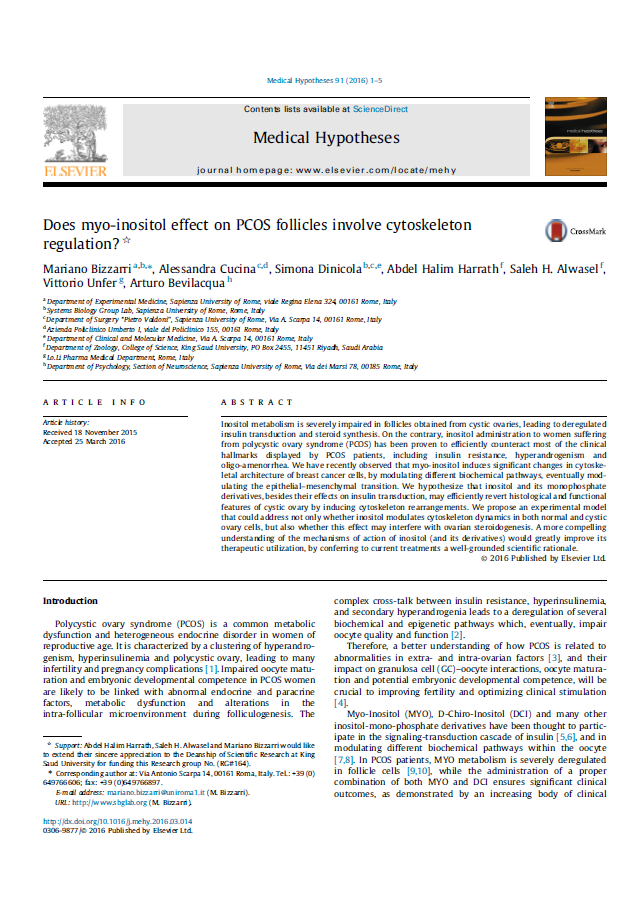Abstract
Inositol metabolism is severely impaired in follicles obtained from cystic ovaries, leading to deregulated insulin transduction and steroid synthesis. On the contrary, inositol administration to women suffering from polycystic ovary syndrome (PCOS) has been proven to efficiently counteract most of the clinical hallmarks displayed by PCOS patients, including insulin resistance, hyperandrogenism and oligo-amenorrhea. We have recently observed that myo-inositol induces significant changes in cytoskeletal architecture of breast cancer cells, by modulating different biochemical pathways, eventually modulating the epithelial-mesenchymal transition. We hypothesize that inositol and its monophosphate derivatives, besides their effects on insulin transduction, may efficiently revert histological and functional features of cystic ovary by inducing cytoskeleton rearrangements. We propose an experimental model that could address not only whether inositol modulates cytoskeleton dynamics in both normal and cystic ovary cells, but also whether this effect may interfere with ovarian steroidogenesis. A more compelling understanding of the mechanisms of action of inositol (and its derivatives) would greatly improve its therapeutic utilization, by conferring to current treatments a well-grounded scientific rationale.

